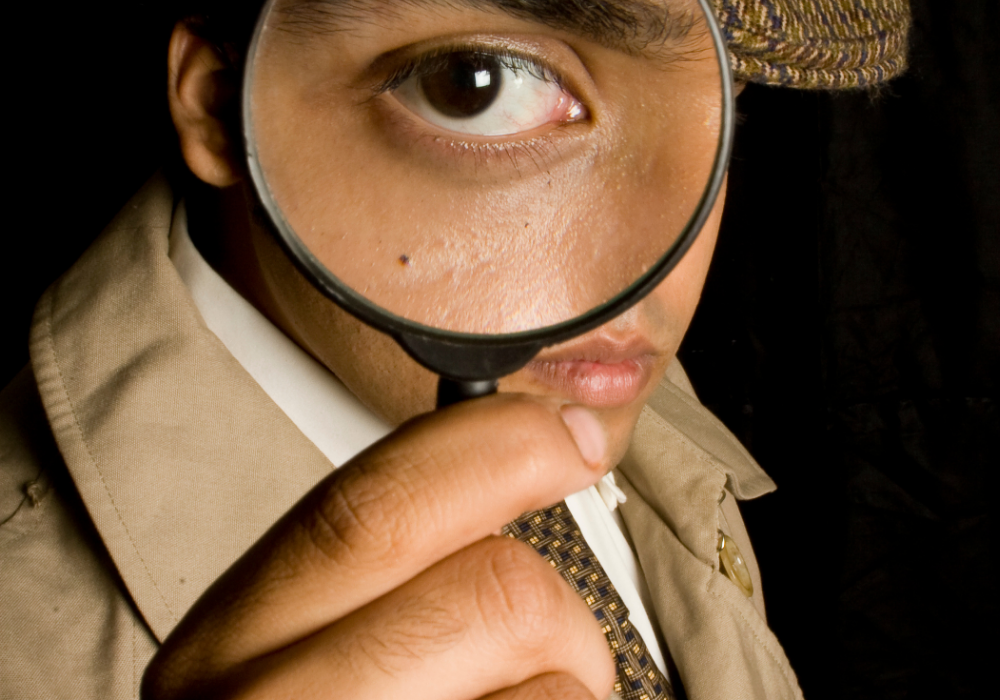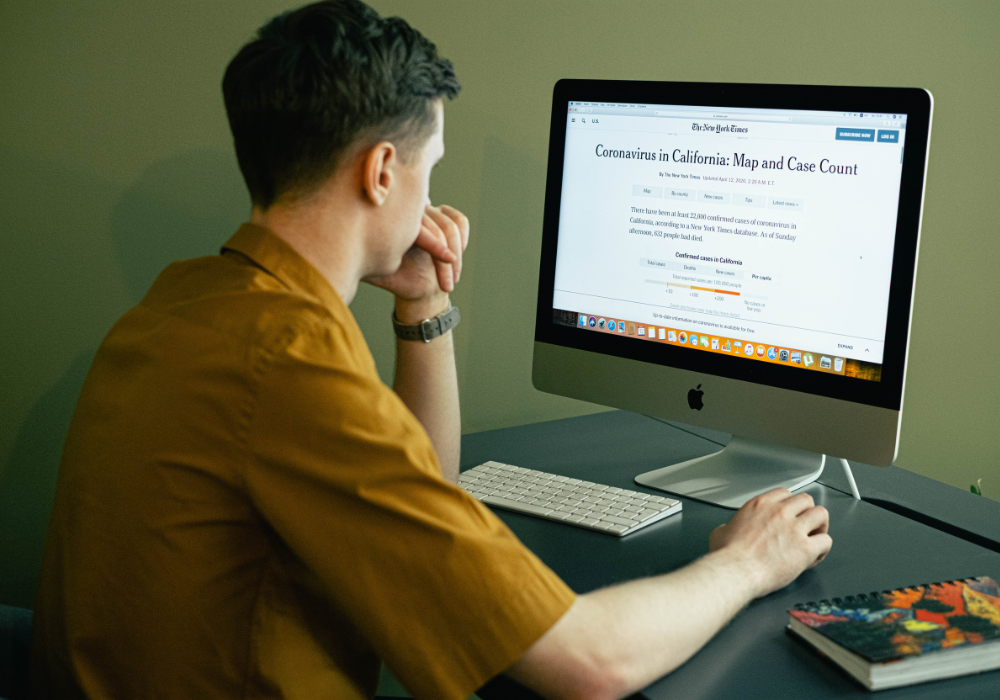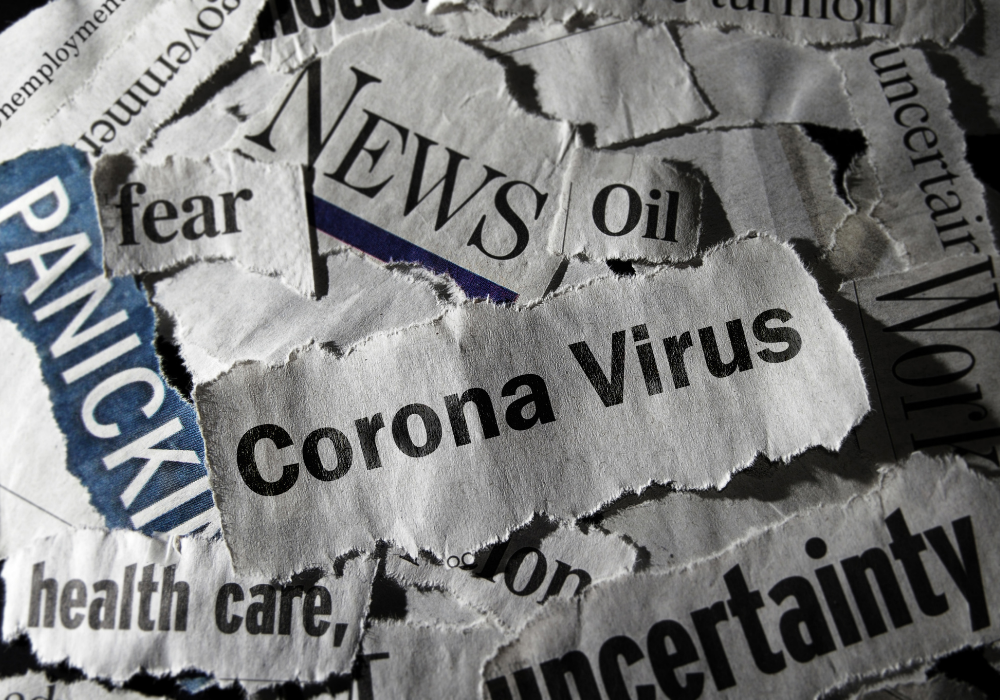Doom-scrolling isn’t activism—here’s how to break the cycle.

News doesn’t just keep you informed anymore—it hijacks your nervous system. Every scroll, swipe, and headline delivers a fresh round of chaos, as if the world personally invited you to bear witness to every disaster. Fires, floods, political turmoil, economic free-fall—it’s exhausting, and yet, you still can’t look away.
Your brain was never meant to process this much bad news at once. In the past, people learned about major world events days, weeks, or even months after they happened. Now? You get a live play-by-play of every unfolding catastrophe, complete with push notifications and sensational headlines designed to keep you panicked. No wonder everyone feels like they’re one crisis away from a breakdown.
But ignoring the news completely isn’t the answer either. Staying informed matters—just not at the expense of your mental health. The trick is setting boundaries, creating better habits, and knowing when to step back. Here’s how to keep up without burning out.
1. Stop checking the news like you’re a government spy on a mission.

Refreshing headlines every hour won’t make world events any less terrible, but it will make you feel worse. The news cycle isn’t designed for your well-being—it thrives on urgency, shock, and keeping you glued to the screen. Breaking free starts with setting limits. According to Arianna Huffington for Time magazine, constant stress from news and social media can negatively impact mental and physical health, making it essential to manage stress by focusing on meaningful engagement rather than doomscrolling.
Decide when you’ll check in—once in the morning, once in the evening, and that’s it. Get the essential updates, then walk away. And for the sake of your sanity, turn off those breaking news alerts. Unless an asteroid is actively hurtling toward your apartment, you don’t need to be on call for every crisis. If something truly important happens, trust that you’ll hear about it.
2. History proves that humanity has always been a mess, yet here we are.

Right now, everything feels like the worst it’s ever been. And in some ways, that’s true—climate change, political instability, and economic turmoil are hitting harder than ever.
But step back a little, and you’ll see that humanity has always survived massive upheavals. We’ve been through pandemics, wars, economic crashes, and social revolutions before. Somehow, we keep going.
History offers perspective. It reminds you that past generations also faced moments that felt like the end of everything, yet society adapted, changed, and moved forward. Read about previous crises, learn how people navigated them, and recognize that humans have an incredible ability to endure. Per Sergei Guriev in The Financial Times, humanity has historically overcome crises, with social science research supporting a positive outlook.
3. Every news source has a bias—find the ones that admit it.

Neutrality is a myth. Every news outlet has a perspective, whether they acknowledge it or not. The trick isn’t finding some magical unbiased source—it’s choosing journalism that owns up to its biases instead of pretending they don’t exist. Reliable news sources provide context, correct their mistakes, and don’t rely on outrage to keep you engaged. A study by the University of Rochester analyzed 1.8 million news headlines from major U.S. outlets between 2014 and 2022, revealing increasing polarization in coverage of domestic politics and social issues.
If an outlet seems more invested in keeping you angry than actually informing you, it’s time to step back. And don’t just stick to one source—reading multiple perspectives helps you separate actual facts from fear-based storytelling.
4. Doom-scrolling won’t fix anything, but doing something might.

Nothing fuels anxiety like watching bad news unfold with no way to act. It’s like staring at a burning building with your hands tied—frustrating, exhausting, and paralyzing. The best antidote? Action.
Even small steps—donating, volunteering, signing petitions—can shift your brain from helpless to purposeful. You won’t single-handedly fix climate change or global injustice, but you’ll remind yourself that you’re not powerless.
Taking action, no matter how minor, is a way to reclaim control when the world feels overwhelming. It’s not about solving everything at once—it’s about refusing to let despair win and proving that small efforts, collectively, create real change.
5. If you don’t control your news intake, the algorithm will do it for you.

If you don’t set boundaries for your media consumption, the internet will happily drown you in an endless feed of anxiety-inducing headlines. The news cycle isn’t built to prioritize your well-being. It will take as much of your attention as you’re willing to give it. That means you need to take control.
Be intentional about what kind of news you consume and how much of it you let into your daily life. Set time limits. Choose sources that inform rather than manipulate. Decide what topics are actually important to you instead of letting algorithms dictate what you should care about. Your attention is valuable, and your mental health is worth protecting. You don’t have to be an emotional sponge for every crisis just because it’s trending.
6. If you’re checking the news to soothe your anxiety, it’s not working.

There’s a fine line between seeking information and feeding your anxiety. If you find yourself refreshing headlines without actually learning anything new, that’s a sign you’re in the latter category.
Real information has an endpoint—you read it, understand it, and move on. Anxiety-driven checking, on the other hand, never feels done. It’s a loop. Breaking it starts with awareness. The next time you reach for your phone, pause. Are you looking for facts, or are you looking for reassurance that everything isn’t completely falling apart? If it’s the second one, news won’t help—but a deep breath, a walk, or a conversation might.
7. Your phone is controlling you—put it down before it takes over completely.

Your phone is like a magnet, and if it’s within reach, you will check it. Not because you need to, but because it’s there. The easiest way to break the habit? Create literal distance.
Leave your phone in another room during meals, charge it outside your bedroom at night, or at the very least, turn it face-down so it’s not constantly flashing headlines at you. The goal isn’t total tech abstinence—it’s control. When you’re not reflexively checking, you get to choose when and how you engage with the news, instead of letting it hijack your attention on demand.
8. The media is playing you, and it’s time to fight back.

The news isn’t just there to inform you—it’s there to grab your attention, keep you clicking, and hold you captive in a cycle of outrage. Sensational headlines, dramatic language, and crisis framing aren’t accidents. They’re strategies designed to hijack your emotions and make sure you come back for more. Once you recognize the game, it gets easier to step out of it.
Instead of letting every urgent-sounding headline trigger panic, pause and ask yourself, “What response is this designed to create?” Look for exaggeration, selective framing, or missing context. Sensationalist coverage often amplifies fear while downplaying nuance, so stick to sources that provide depth, not just shock value. Staying informed doesn’t mean falling for every manufactured emergency. When you see the tactics for what they are, they lose a lot of their power over you.
9. Bad news is everywhere, but good news exists too—go find it.

The news is excellent at telling you what’s going wrong but terrible at showing you what’s being done to fix it. If all you ever hear about is the destruction, it’s easy to believe the world is spiraling into hopeless chaos. But the full story includes more than just the problems—people are out there working on solutions.
Seek out journalism that highlights progress, not just crisis. Read about communities fighting back against climate change, scientists developing breakthrough technologies, or activists creating real policy change. It won’t erase the problems, but it will remind you that not everything is doomed. Hope isn’t about ignoring reality—it’s about acknowledging that there’s more to it than just disaster. The world is full of people trying to make things better, and their stories deserve attention too.
10. Endless scrolling won’t save the world, but it will ruin your mood.

Digital news never stops. One article leads to another, then another, and suddenly, you’ve fallen into an algorithm-driven black hole of despair. There’s no natural stopping point, no moment when the feed says, You’ve read enough. Go live your life.
Print media, on the other hand, has an actual endpoint. You read it, absorb it, and then—this is key—you move on. Even digital versions of print publications follow this format, giving you a complete, contained news experience instead of an endless anxiety spiral. Plus, print journalism tends to be more carefully edited, meaning you’re getting depth instead of just drama.
11. Talking to actual humans about the news makes it less terrifying.

Reading headlines in isolation can make everything feel ten times worse. Talking about them with people you trust puts things in perspective. A good conversation can remind you that you’re not alone in your concern, and sometimes, that’s all you need to feel a little less hopeless.
Choose your discussion partners wisely. The goal isn’t to turn every chat into a debate tournament—it’s to process what’s happening in a way that helps you cope. Some news is easier to bear when you’re not carrying it alone. And who knows? Maybe you’ll even manage to laugh at the absurdity of it all.
12. Headlines make you panic, but real knowledge comes from deeper dives.

Endless headline scrolling doesn’t make you more informed—it makes you more anxious. The more fragmented your news consumption, the harder it is to actually understand what’s happening. Headlines give you surface-level shock, but real knowledge comes from deeper engagement.
Instead of bouncing between five different breaking news alerts, pick a single well-researched article or a documentary that explains an issue in full. Long-form journalism, investigative podcasts, and detailed reports provide context that clickbait never will. You don’t need to follow every single update as it happens. What you need is a clear, well-rounded understanding of the bigger picture. And that doesn’t come from scanning a dozen dramatic headlines—it comes from sitting with a story long enough to actually absorb it.
13. Your body is screaming for a break—listen to it before it quits on you.

Your brain might try to convince you that you’re fine, but your body always knows when you’re stressed. That tight feeling in your chest? The tension in your shoulders? The way your breath gets shallow the longer you scroll? Those are signs that your nervous system is overloaded, even if you haven’t fully registered it yet.
Check in with yourself as you consume news. If you notice your heart rate climbing or your jaw clenching, it’s time to step away. Take a deep breath, move around, or just close your eyes for a moment. Your body is built to handle stress in small doses, but if you don’t listen to it, that stress builds up fast. Recognizing these physical cues early keeps you from spiraling into full-blown anxiety without realizing it.
14. Consuming bad news all day is exhausting, so make time for things that recharge you.

You can’t just keep taking in negativity without replenishing yourself. Every crisis you read about takes a little bit of your emotional energy, and if you don’t refill that tank, you’ll burn out fast. Keeping up with the world’s problems is important, but so is making space for things that remind you why it’s worth caring in the first place.
Find your counterbalance. Go outside. Laugh with a friend. Watch something that makes you feel good instead of just informed. This isn’t escapism—it’s self-preservation. If you want to stay engaged without losing yourself in the chaos, you have to actively seek out joy, hope, and connection. The world is overwhelming, but it’s not just a mess. It’s also full of beauty, kindness, and people fighting for a better future. Make sure you’re paying attention to that, too.